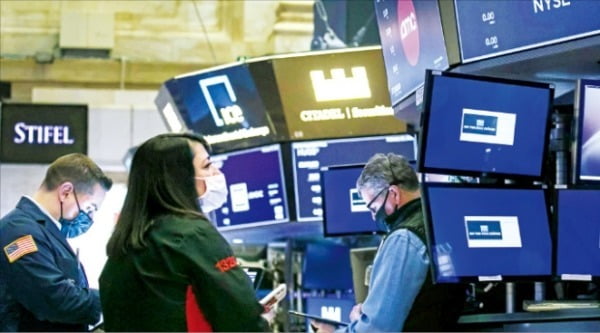NEW YORK (dpa-AFX) – On Wall Street, the Dow Jones Industrial (Dow Jones 30 Industrial) gave way on Friday. Fears of inflation remained the dominant theme, even if the situation on the bond market has calmed down for the time being. Yields there soared recently for fear of a tighter monetary policy to ward off inflationary tendencies. Rising interest rates make bonds appear in a better light than stocks.
The Dow fell 0.69 percent to 31,184.87 points. It was not until Wednesday that the stock market barometer reached a record high after Fed Chairman Jerome Powell tried to calm down monetary policy.
The market-wide S&P 500, however, advanced on Friday by 0.20 percent to 3836.93 points. The technology-heavy NASDAQ 100 recovered a little more clearly from its fall on Thursday and rose 1.24 percent to 12,987.81 points.
Despite recent losses, however, the markets are currently far from being in free fall, wrote Craig Erlam of broker Oanda. The yields on US bonds would remain at a very low level compared to their historical values.
At the Dow end, Salesforce’s shares fell 4.7 percent. At first glance, the software company is surprisingly optimistic about the future, thanks to an apparently increasing interest from customers. However, the expert Mark Moerdler from the analysis company Bernstein Research was concerned about declining revenue growth and the sustainability of margins. The company’s outlook also factored in acquisitions. Excluding this, the Group’s growth targets would be below the longer-term horizon.
Investors, on the other hand, grabbed hold of the papers of the apartment broker Airbnb, which despite a mega-loss last year apparently got through the crisis better than expected. After the severe slump at the beginning of the pandemic, business has recently recovered significantly. The shares soared by a good ten percent. / La / he
–
TRADING FOREIGN EXCHANGE WITH UP TO LEVER 30 NOW
Trade forex with high leverage and small spreads. With only € 100.00 you can benefit from the effect of € 3,000 in capital.
–
76.4% of retail investor accounts lose money when trading CFDs with this provider. You should consider whether you can afford the high risk of losing your money.
–
– .

